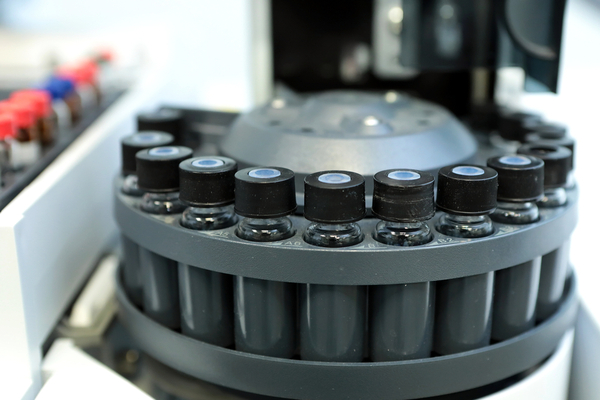As the demand for cannabinoid products continues to climb, businesses are emerging to accommodate this need, some of which are more reputable than others. Utilizing technology, like chromatography, can help separate quality cannabis and hemp producers from the crowd.
At present, a discrepancy exists between federal and state laws, so there are no nationally standardized regulations for hemp and cannabis supplements. While all products should be tested for composition, content, potency, adulterants and toxic residues, many times quality control is lacking. Without standardization, it is difficult for consumers to know who to trust and bad business practices are giving good businesses a black eye.
Using Chromatography to test for potency
Different strains of the cannabis plant contain varying levels of active compounds. Diverse environmental conditions can even produce different cannabinoid concentrations within various plants of the same strain. The fact that cannabis comes from a plant and is not a chemically derived substance makes it difficult to determine content levels and dosage. Chromatography can help producers and manufacturers deliver a quality, accurately dosed product.
According to a recent paper, Labeling Accuracy of Cannabidiol Extracts Sold Online, the labeling on many CBD products is inaccurate. The team who contributed to this paper purchased 84 products with labels stating they contained CBD. These samples came from 31 companies and included tinctures, vaporization liquids, and oils.
Testing was performed with high-performance liquid chromatography (HPLC). Chromatography separates cannabinoids from cannabis and hemp extracts at a molecular level. One of the big advantages of chromatography is the ability to work with low concentrations and very small samples.

In the legal CBD trade, collected samples revealed only 31% were accurately labeled, and other products contained more or less CBD than stated on the label. The team also found, out of the 84 samples tested, unreported THC was present in 18 of them.
Using Chromatography to test for contaminants
In addition to ensuring quality dosing, chromatography is also being used to test for and remove residual solvents and contaminants. Pesticides, herbicides, fungicides, and other chemicals used in cultivation can be transferred into the extracts from the plant. Screening for these types of toxins in extracts intended for human consumption should be fundamental.
In Colorado, the State issues a list of acceptable levels of particular contaminants (section R712) each year. Due to the efforts of legalization, state regulation helps ensure a safe product for consumers. However, hemp from a plethora of sources is being utilized to produce cannabidiol supplements for all states. The hemp could be being produced as “industrial hemp” with less agricultural standards, or it may be imported from foreign sources.
Chromatography: A badge of integrity
The growing popularity of CBD in the health supplement sector and the lack of regulation is the perfect environment for shady business practices. In a market without federal regulation from the FDA, many cannabis and hemp extracts have less regulation than a candy bar, as pointed out in a press release by Marcel Bonn-Miller, Ph.D. and leading author on the study,
“The big problem, with this being something that is not federally legal, is that the needed quality assurance oversight from the Food and Drug Administration is not available. There are currently no standards for producing, testing, or labeling these oils. So, right now, if you buy a Hershey bar, you know it has been checked over; you know how many calories are in it, you know it has chocolate as an ingredient, you know how much chocolate is in there. Selling these oils without oversight, there is no way to know what is actually in the bottle. It’s crazy to have less oversight and information about a product being widely used for medicinal purposes, especially in very ill children, than a Hershey bar.”
In states with legal marijuana, strict regulations and rigorous testing are required on all hemp products. In addition, high-quality crops are organically grown and harvested with state-of-the-art equipment. Products are tested using cutting-edge technology in laboratories and standardized to contain a specific cannabinoids content.
However, others only see a “get-rich-quick” opportunity, cashing in on the growing demand without concern for the quality of the product or the well-being of the consumer. Until standards and regulations are officially put in place consumers must rely on the integrity of upstanding business practices. Utilizing chromatography to ensure a quality product can lead canna-businesses to success.

